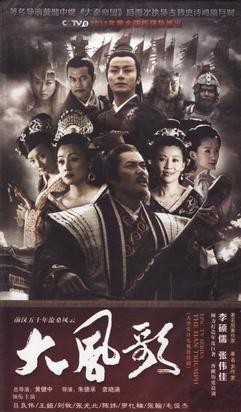| |||||
| Decades: | |||||
|---|---|---|---|---|---|
| See also: | Other events of 1898 History of China • Timeline • Years | ||||
Events from the year 1898 in China (戊戌).
| |||||
| Decades: | |||||
|---|---|---|---|---|---|
| See also: | Other events of 1898 History of China • Timeline • Years | ||||
Events from the year 1898 in China (戊戌).

Yuan Shikai was a Chinese military and government official who rose to power during the late Qing dynasty and eventually ended the Qing dynasty rule of China in 1912, later becoming the Emperor of China. He first tried to save the dynasty with a number of modernization projects including bureaucratic, fiscal, judicial, educational, and other reforms, despite playing a key part in the failure of the Hundred Days' Reform. He established the first modern army and a more efficient provincial government in North China during the last years of the Qing dynasty before forcing the abdication of the Xuantong Emperor, the last monarch of the Qing dynasty in 1912. Through negotiation, he became the first President of the Republic of China in 1912. This army and bureaucratic control were the foundation of his autocratic rule. In 1915 he attempted to restore the hereditary monarchy in China, with himself as the Hongxian Emperor. His death in 1916 shortly after his abdication led to the fragmentation of the Chinese political system and the end of the Beiyang government as China's central authority.
The Hundred Days' Reform or Wuxu Reform was a failed 103-day national, cultural, political, and educational reform movement that occurred from 11 June to 22 September 1898 during the late Qing dynasty. It was undertaken by the young Guangxu Emperor and his reform-minded supporters. Following the issuing of the reformative edicts, a coup d'état was perpetrated by powerful conservative opponents led by Empress Dowager Cixi.

Jinshi was the highest and final degree in the imperial examination in Imperial China. The examination was usually taken in the imperial capital in the palace, and was also called the Metropolitan Exam. Recipients are sometimes referred to in English-language sources as Imperial Scholars.

Tan Sitong, courtesy name Fusheng (復生), pseudonym Zhuangfei (壯飛), was a well-known Chinese politician, thinker, and reformist in the late Qing dynasty (1644–1911). He was executed at the age of 33 when the Hundred Days' Reform failed in 1898. Tan Sitong was one of the six gentlemen of the Hundred Days' Reform, and occupies an important place in modern Chinese history. To many contemporaries, his execution symbolized the political failure of the Qing dynasty's reformation, helping to persuade the intellectual class to pursue violent revolution and overthrow the Qing dynasty.

Ronglu, courtesy name Zhonghua, was a Manchu political and military leader of the late Qing dynasty. He was born in the Guwalgiya clan, which was under the Plain White Banner of the Manchu Eight Banners. Deeply favoured by Empress Dowager Cixi, he served in a number of important civil and military positions in the Qing government, including the Zongli Yamen, Grand Council, Grand Secretary, Viceroy of Zhili, Beiyang Trade Minister, Secretary of Defence, Nine Gates Infantry Commander, and Wuwei Corps Commander. He was also the maternal grandfather of Puyi, the last Emperor of China and the Qing dynasty.

The Qin Empire is a 2009 Chinese television series based on Sun Haohui's novel of the same Chinese title, which romanticises the rise of the Qin state in the Warring States period under the leadership of Duke Xiao of Qin. It was produced in 2006 and first aired on television channels in China in December 2009. It was followed by three sequels: The Qin Empire II: Alliance (2012), The Qin Empire III (2017) and The Qin Empire IV (2019), which were also based on Sun Haohui's novels.

The Han Triumph, also known as Wind Ode, is a Chinese television series based on historical events in the early Han dynasty, beginning with the founding of the dynasty by Liu Bang after his triumph over Xiang Yu, and the events leading to the reign of Liu Heng. Directed by Huang Jianzhong, the series starred Ray Lui, Wang Ji, Liu Mu, Zhang Guangbei, Chen Wei and Li Qingxiang in the leading roles. It was first broadcast on CCTV-8 in China on 17 December 2011.
Events in the year 1900 in China.
Events in the year 1884 in China.
Events in the year 1885 in China.
Events from the year 1899 in China.
Events from the year 1907 in China.
Events from the year 1893 in China.
Events in the year 1887 in China.

Liu Guangdi was a Chinese government minister during the late Qing dynasty. He was a leader of the Hundred Days' Reform movement of 1898. After the reforms were reversed in a coup, he and five other leaders were executed. They are now considered as martyrs and are referred to as the Six Gentlemen. Liu was also a reformist patriotic poet of the late Qing Dynasty.
Events from the year 1897 in China.
Events from the year 1889 in China.
Events in the year 1886 in China.
Events in the year 1888 in China.